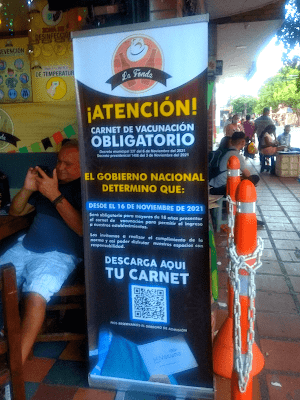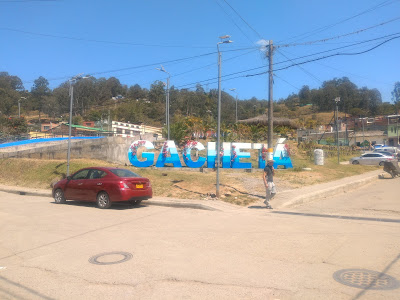@wwaycorrigan
[Listen to an audio version of this blog entry here.]
And
just like that, it's all over — kind of. Within a couple of days of
each other, both England (just England initially that was, not the other
UK nations) and, more shockingly,
a heretofore extremely cautious — officially, anyway — Republic of
Ireland announced that they were ending most of the coronavirus pandemic
restrictions.
 |
| Thou shalt not pass without a covid-19 vaccine pass: The social credit system in action — comply or be ostracised. |
Learning to live again
Of course, I don't (currently) reside in either jurisdiction but I was somewhat optimistic on hearing the news. I'm not, however, expecting a domino effect around the globe in the coming weeks.It does, nonetheless, give one hope that other nations will start to accept that we have to learn to live with covid-19 rather than stubbornly and damagingly maintain a suppression strategy.
As has been said oft-times before on this blog, we're not talking about an indiscriminate killer here, despite the efforts of many governments and media groups to portray Sars-Cov-2 as such. This covid monomania comes at a price — not just economically but in lives lost as well — and that price is something we're set to live with for some time to come.
I wrote previously (see https://wwcorrigan.blogspot.com/2021/09/rocking-in-fear-world.html) about the irrational fear that has been instilled in the masses over the last two years.
What's more, all the various rules and recommendations aimed at saving lives have empowered what one could call a citizen's army of do-gooders and virtue-signallers. Well-intentioned they may be but, as is often the case in such affairs, they are potentially doing more harm than good — and most likely to themselves than to anyone else.
'"Recklessly" going against the doctrine puts us all in jeopardy. So, à la Novak Djokovic in authoritarian Australia, an example must be made of these apostates.'
You see, many of us at the receiving end
of such unsolicited help to save ourselves and humanity at large can, to
a certain extent, shrug it off. The preachers, on the other hand, are
so worked up about it that it appears to consume them.
In effect, they almost stop living because they become so concerned about avoiding death.
Pernicious pretenders
Raised as an Irish Catholic, I see something quite familiar here. The top brass who issue the orders largely ignore them in their private (and not-so-private) lives — vide the No. 10 Downing Street parties and Golfgate in Ireland — but the foot soldiers follow the commands with zeal.In other words, the plebs are the ones who do the donkey work, pay the biggest price, yet they'll never see the green pastures, the promised land.
For these covid crusaders, the non-believers, the heathens, must equally — or, preferably, to a greater extent — suffer. In fact, it's those who question the gospel who are the problem. They must be brought into line.
"Recklessly" going against the doctrine puts us all in jeopardy. So, à la Novak Djokovic in authoritarian Australia, an example must be made of these apostates.
The Catholic Church — together with other such institutions — has done a great job at convincing folk through the ages that having fun in the here and now only leads one to the depths of hell. Not only is living fundamentally a struggle but you must also suffer whilst going through it. (I must say, these days I do move to a more ascetic beat — I'm certainly no party animal anyway — but I don't expect everyone to follow my lead. I'm happy for people to mix, mingle and live as they see fit as long as they don't inconvenience me too much.)
Where religion has lost its (often malignant) influence we have plenty of pernicious pretenders to step into the vacuum.
This coronavirus pandemic has given such fanatical forces a shot in the arm, literally and metaphorically. The fun police have been reinvigorated. The officers won't go away quietly.
_______________________________________________________________
Listen to Wrong Way's Colombia Cast podcast here.
Facebook: Wrong Way Corrigan — The Blog & IQuiz "The Bogotá Pub Quiz".








